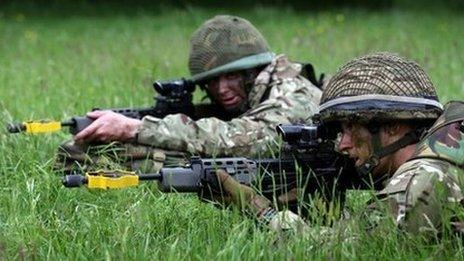Army needs more minority recruits - Gen Sir Nick Carter
- Published
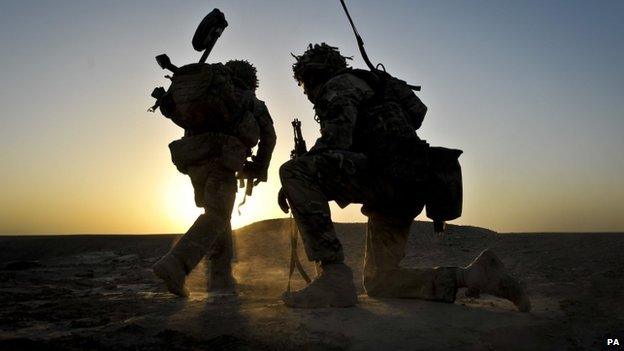
The Army must do more to recruit black, Asian and minority ethnic (BAME) personnel, its top officer has said.
Gen Sir Nick Carter said the Army must "draw talent from all of the society we represent" to find the best recruits.
Army values share "common ground" with minority communities, he said.
Soldiers from black, Asian and minority ethnic groups make up just over 10% of the Army's 87,000 regular personnel, slightly less than the proportion in the wider population.
But many come from the Commonwealth, not the UK. As of 1 October 2014 figures from the Ministry of Defence (MoD) show that 42% (4,660) of BAME personnel, external were from the UK, with the remaining 58% (6,300) from foreign and commonwealth countries.
"My highest priority is ensuring we continue to have the best possible talent throughout our Army," Sir Nick said.
"Our recruitment from the black, Asian and minority ethnic communities has been improving over the years, but it is nowhere near where it needs to be. We have to do more."
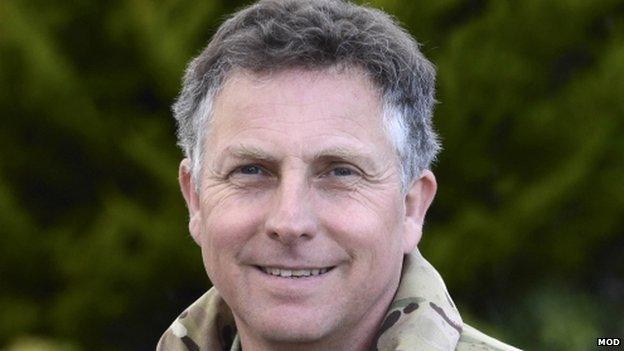
Gen Sir Nick Carter said the Army had to find the "best talent possible"
He added: "The values and standards we espouse resonate closely with these communities and there is much common ground that we can build on to broaden our recruitment base."
'Cultural understanding'
The Army plans to take part in 10 events "engaging with BAME communities" this year, and its recruitment campaign will also use social media.
A set of networks exists within the Army - including groups for Buddhists, Christians, Hindus, Humanists, Jewish people, Muslims, Sikhs and lesbian, gay, bisexual and transgender personnel.
Imam Asim Hafiz, Islamic religious adviser to the chief of the defence staff and service chiefs, said values in the armed forces are "fully compatible" with those of Islam.
He added: "Diversity is one of our nation's greatest strengths and it is only right that our armed forces benefit from that capital.
"This not only brings them closer to the people that they serve, but also enhances the military's cultural understanding when deployed."
Afzal Amin, a former British army officer, told Radio 4's Today programme the armed forces needed varied "linguistic, cultural and social" capabilities.
He added: "If we are going to deploy in the future into northern Iraq again, or in Syria, we need people that can speak not only to local civilian populations we wish to influence, but also to our partners and our allies. Having that proficiency in the language is very very important."
According to the 2011 census, 14% of people in England and Wales, external were from black, Asian and minority ethnic communities.
The figure was just over 4% in Scotland, external and 1.8% in Northern Ireland, external.
• An earlier version of this story incorrectly attributed a quote from Afzal Amin to Asim Hafiz. This has been amended.
- Published24 January 2015
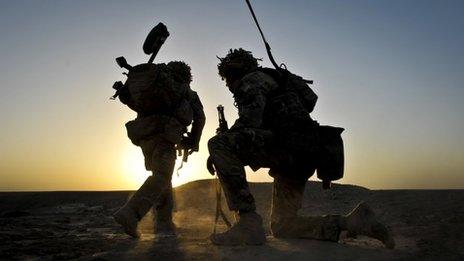
- Published16 January 2015
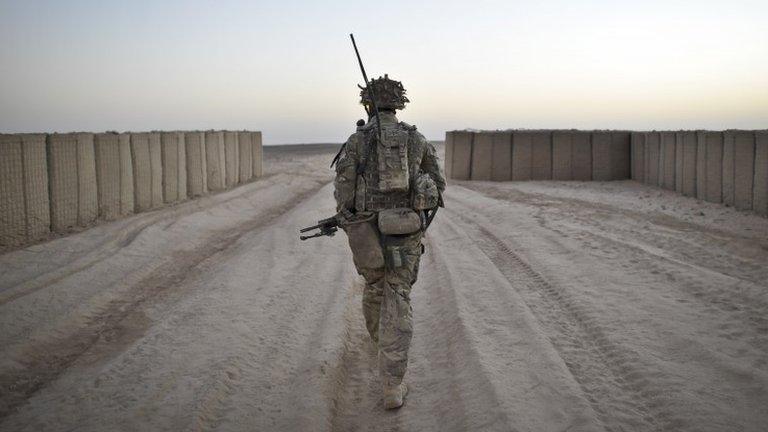
- Published13 September 2014
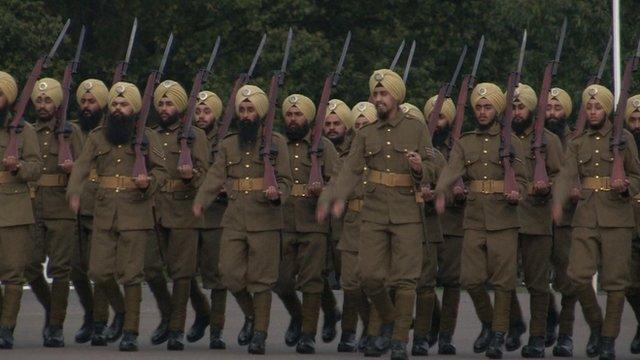
- Published8 May 2014
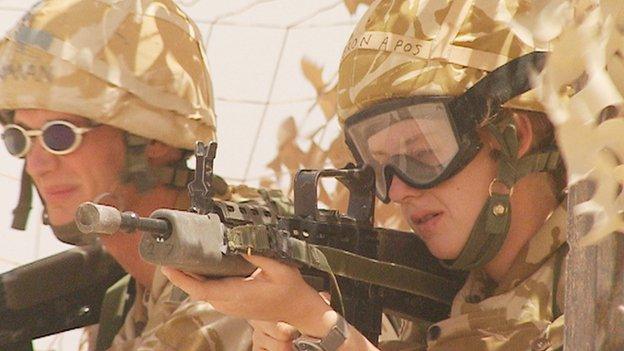
- Published11 January 2014
